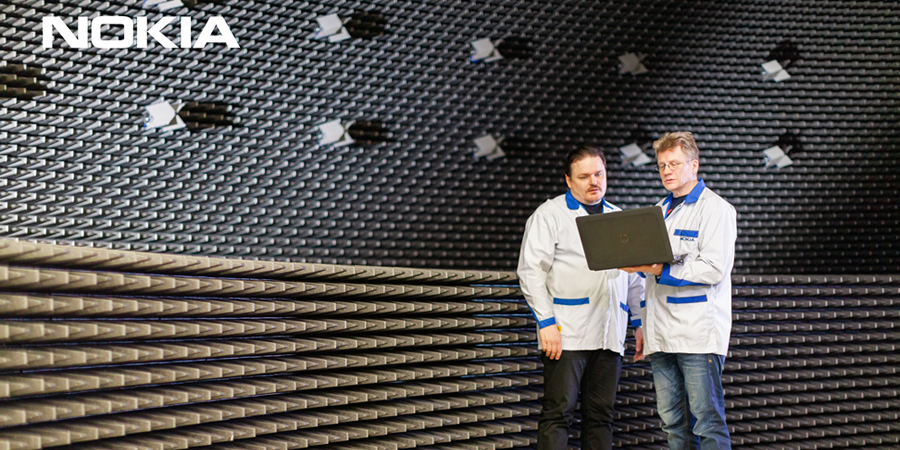Nokia is making 5G deployments faster and more cost-efficient with its patent-pending 5G virtual testing environment. In its over-the-air validation area in Oulu, Finland, Nokia works with operators to simulate massive MIMO antenna beamforming performance by combining physical testing with a leading edge virtual environment.
5G increases the complexity of physical antennas, the algorithms necessary to deliver optimal efficiency, as well as the sheer number of site deployments. In the 5G test lab, Nokia combines a unique physical over-the-air test environment with virtual reality (VR) to test and verify the optimal site locations of the antennas for operators. Using Nokia's patent-pending approach, the test lab simulates a multitude of different physical environments to improve both the accuracy and performance of 5G mMIMO beamforming antennas in the real world.
The lab is also used to verify ReefShark chipset massive performance gains and test ReefShark components in complete radio systems as ReefShark based deployments are continuing to accelerate. Furthermore, the test lab is instrumental in the development of artificial intelligence and machine learning algorithms, which are vital to maximize the capabilities and spectral efficiency of mMIMO antennas.
By combining the physical and VR worlds together with mixed reality, this unique lab creates a powerful tool for real-world massive MIMO deployment and is being leveraged by leading 5G operators such as Telia in Finland.
Timo Hietalahti, Head of Network Architecture and Development at Telia Finland: "Telia is at forefront of 5G technology in Europe. Nokia's unique lab environment helps us to identify 5G radio network planning challenges earlier and solve them faster. This is a big step forward as it builds the bridge from product design to network implementation and optimization."
Tommi UittoPresident of Mobile Networks at Nokia: "We are very proud of our one-of-a-kind 5G virtual reality testing environment. Instead of expensive and time-consuming drive tests in the city streets, we can build a digital twin on the test lab wall and simulate the mobile devices moving around and the antenna beams following them. This is used for verification, troubleshooting and optimization, making it faster and more efficient to deploy 5G."










